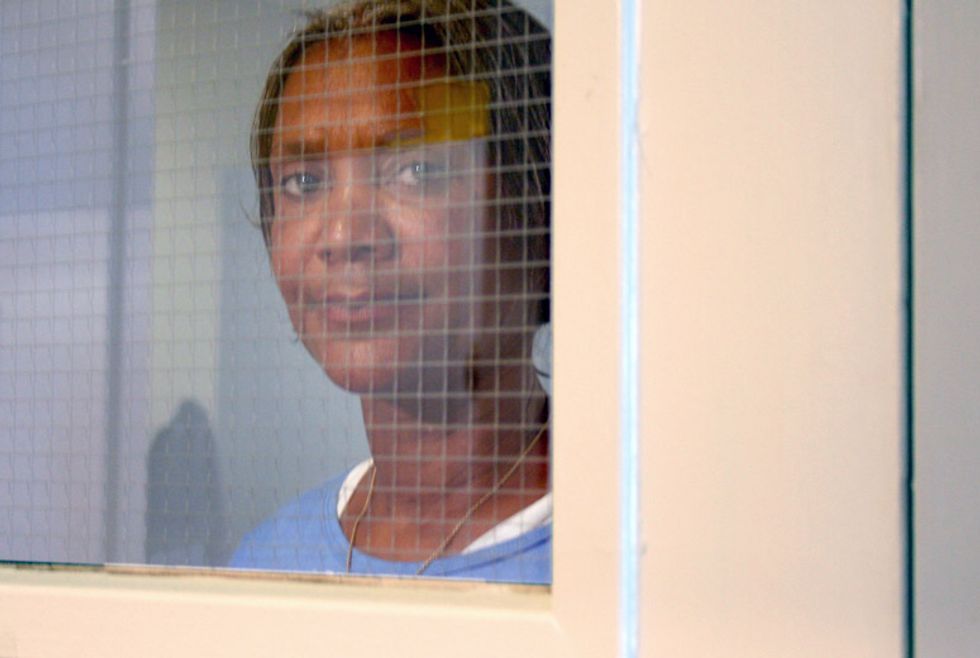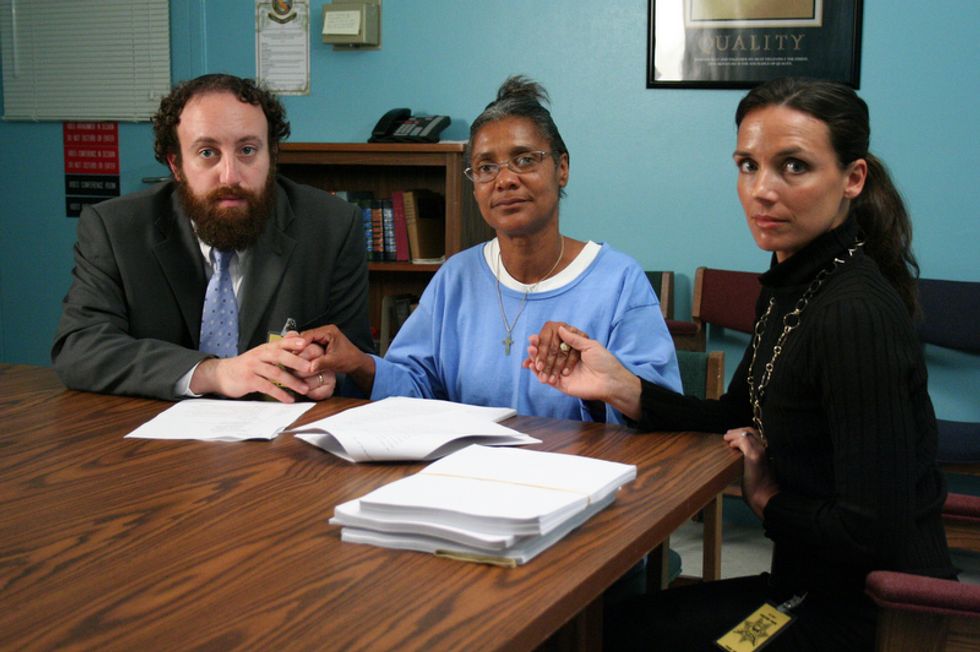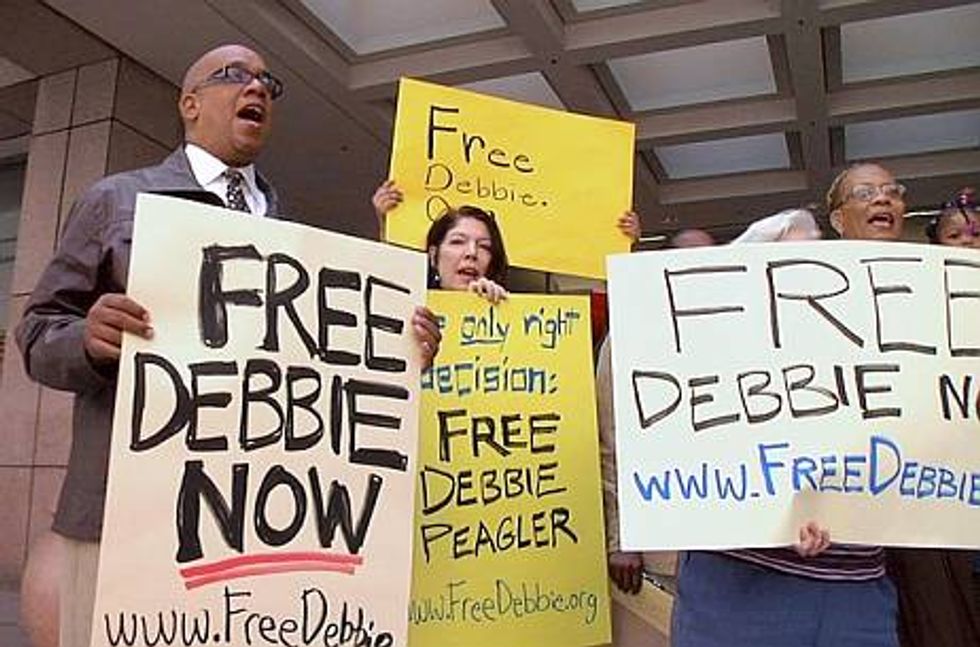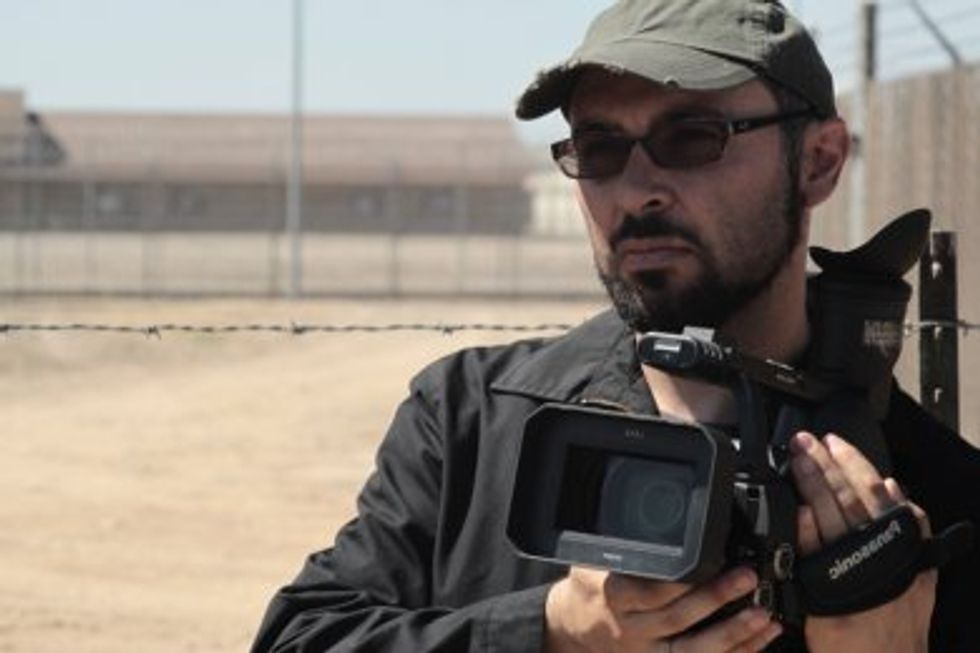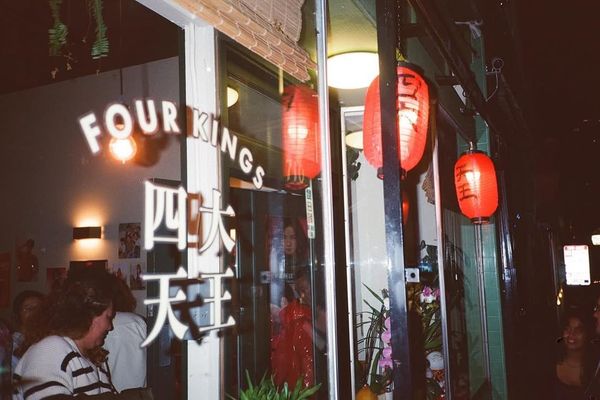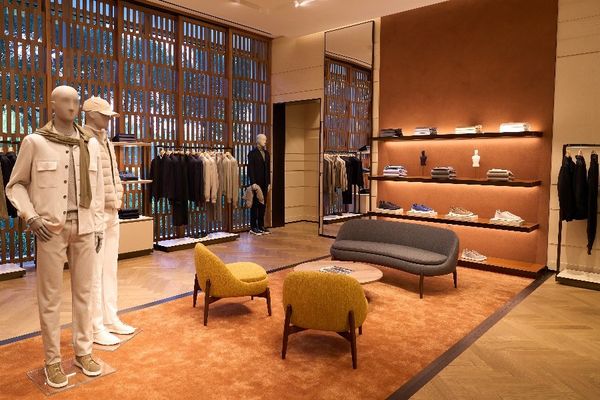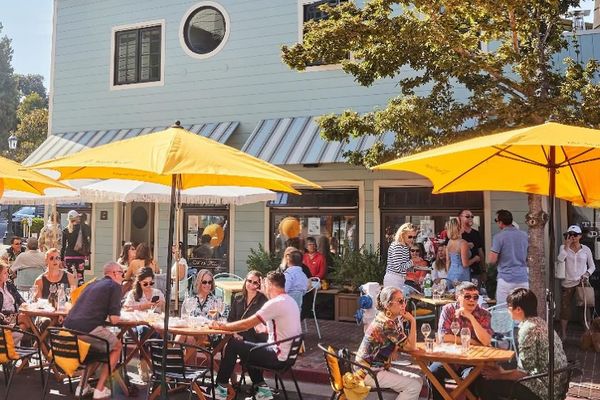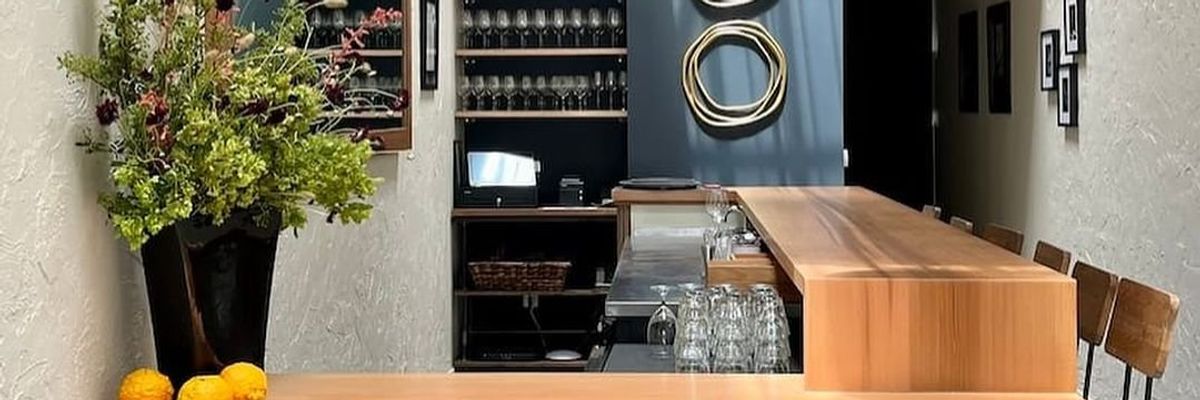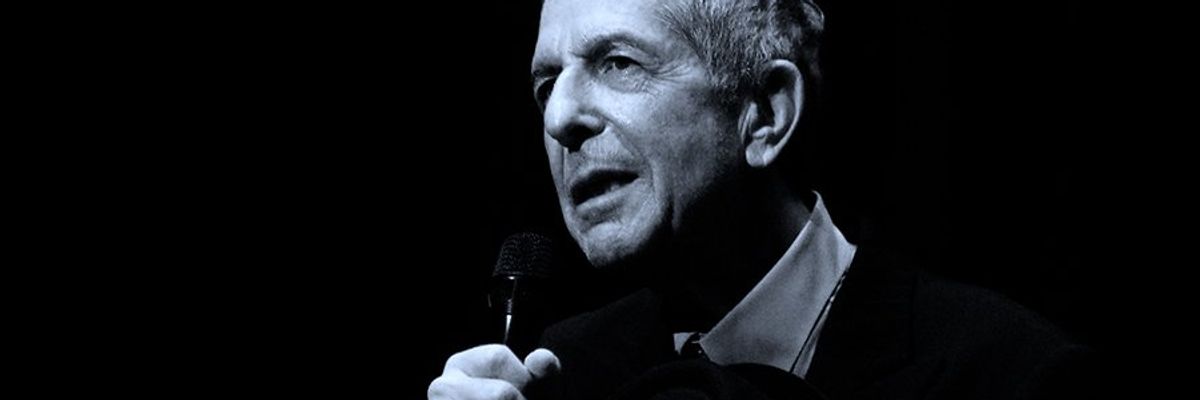In 1983, Compton resident Deborah Peagler was sentenced to 25 years to life in prison for arranging the murder of Oliver Wilson, the man who abused her, forced her into prostitution and molested her daughters. Nearly 20 years later, after California legislators passed a law allowing incarcerated domestic-violence victims to reopen their cases, her case became a cause, quickly adopted by two land-use attorneys (Berkeley’s Joshua Safran and Nadia Costa) determined to see her freed.
Enter Berkeley grad Yoav Potash, an aspiring filmmaker eager to publicize her plight and, justice system willing, celebrate her freedom. The result: Crime After Crime, an acclaimed selection at this year’s San Francisco International Film Festival that recently made its television debut on Oprah Winfrey’s OWN network.
Shot over five-and-a-half years, the documentary offers a rare glimpse inside the walls of the Central California Women’s Facility in Chowchilla, as well as a frustrating, fascinating underdog story pitting Peagler and her rookie lawyers against the powerful Los Angeles County District Attorney’s Office. In August 2009, Peagler – who died almost a year later from lung cancer – won her release, but her journey to that point was needlessly complicated by bureaucratic posturing and paroles denied.
Today, Potash continues to champion her struggle, not simply as a tribute to Peagler, who would have turned 52 in December, but to bring cases like hers to light. “We premiered Crime After Crime in January [at the Sundance Film Festival],” says Potash, 38. “The film takes on issues that are significant, that we as a society are poised to address.
“People don’t seem to be aware of the problems that arise when domestic violence and incarceration meet, when you have an abuse victim fighting back and subsequently prosecuted. But states are starting to take a hard look at their legislation and practices, and changes are taking place. It’s an exciting time to be putting out this film.”
On California’s stance toward imprisoned victims of abuse:
“California is, at present, the only state that allows incarcerated victims of domestic violence to petition the courts for their freedom based specifically on evidence of abuse that they experienced. Other states are looking at doing the same thing now. While most states recognize domestic violence in the present, only California has this initiative that allows us to look back at cases that happened maybe 20 years ago, before society understood these kinds of issues.
“That said, all across the country, there are women who’ve been in prison for decades where domestic violence was a factor in the circumstances that led to them being incarcerated. Those circumstances have never been looked at.”
On the interminable wait for lawmakers to address domestic violence and its consequences:
“Change is a gradual process. It took 20 to 30 years for domestic violence to be recognized in the way it is today. In 1980, it started coming out of the shadows, so to speak. From that point, it took [14 years] for there to be any credible legislation enacted against that kind of abuse, in the form of the Violence Against Women Act. It took people much longer to consider domestic violence as a possible factor in alleged crimes.
“Part of the reason why California was the first state to pass this law is because California also has a very difficult parole process. It’s one of only three states where not only does the parole board have to approve a release, but the governor has to approve it, too. So victims of domestic abuse were actually being approved for parole, but those decisions were usually overturned because it’s never politically popular for governors to let anyone out of prison.
“In California, activists and advocates realized they had to find another way, to get around the parole board somehow, and the best and fairest way to do that, they decided, was to let these women go back in court. No one ever said, ‘Let them all out.’ It’s always been an effort to give them a chance to show the evidence and let a judge decide.”
On his first meeting with Deborah:
“I first heard about Deborah from Joshua. He’s a friend of mine, and even after he told me about the case, I didn’t jump at it right away – it wasn’t so black-and-white, where a person’s innocence could be proven using DNA evidence. It was much more complex than that, but once I started to understand its complexities, I agreed to see Deborah.
“The meeting was arranged in the context of a meeting with her legal videographer, so I spent a day with her in an attorney-client room at the prison and filmed an interview with her for six hours. When I left the prison that day, I was convinced that I would be making a film about her, because I was so moved by who she was, as someone who’d been through hell but was still an inspiring and uplifting person to be around.”
On circumventing prison regulations to get the access to Deborah he needed:
“The California Department of Corrections and many prisons around the country have restrictions on freedom of speech and freedom of the press that are unconstitutional. If they’re going to be unconstitutional, then filmmakers like myself are going to be unconventional. That’s why I had to pose as Deborah’s legal videographer, and why I had to make a separate film about prison programs, in which she was involved, that they were willing to grant me access to.”
On his hopes for Crime After Crime, and a possible narrative feature about Deborah’s experience:
“I think what’s best is more and more people knowing about this issue, understanding it, and having compassion for individuals like Deborah. Whatever it takes to make that happen is worth the effort. In truth, I wish more people were passionate about watching documentaries. I wish it was as easy to get an audience and funding on the documentary side of the entertainment business as it is in other facets of the industry.
“But I can’t change the entire business. I’m willing and excited to do everything I can, to use whatever talents I have, to tell stories that I think are important. Whether that involves making a documentary or a narrative drama, that’s really just a choice of mediums. I am currently exploring [the latter], but it's too early to talk about that. Whatever I do, I want to make films that stick with people and change their lives. I’m not interested in making fluff.”
Crime After Crime debuted Nov. 3 on the OWN network. For upcoming broadcasts, check the channel's listings.
